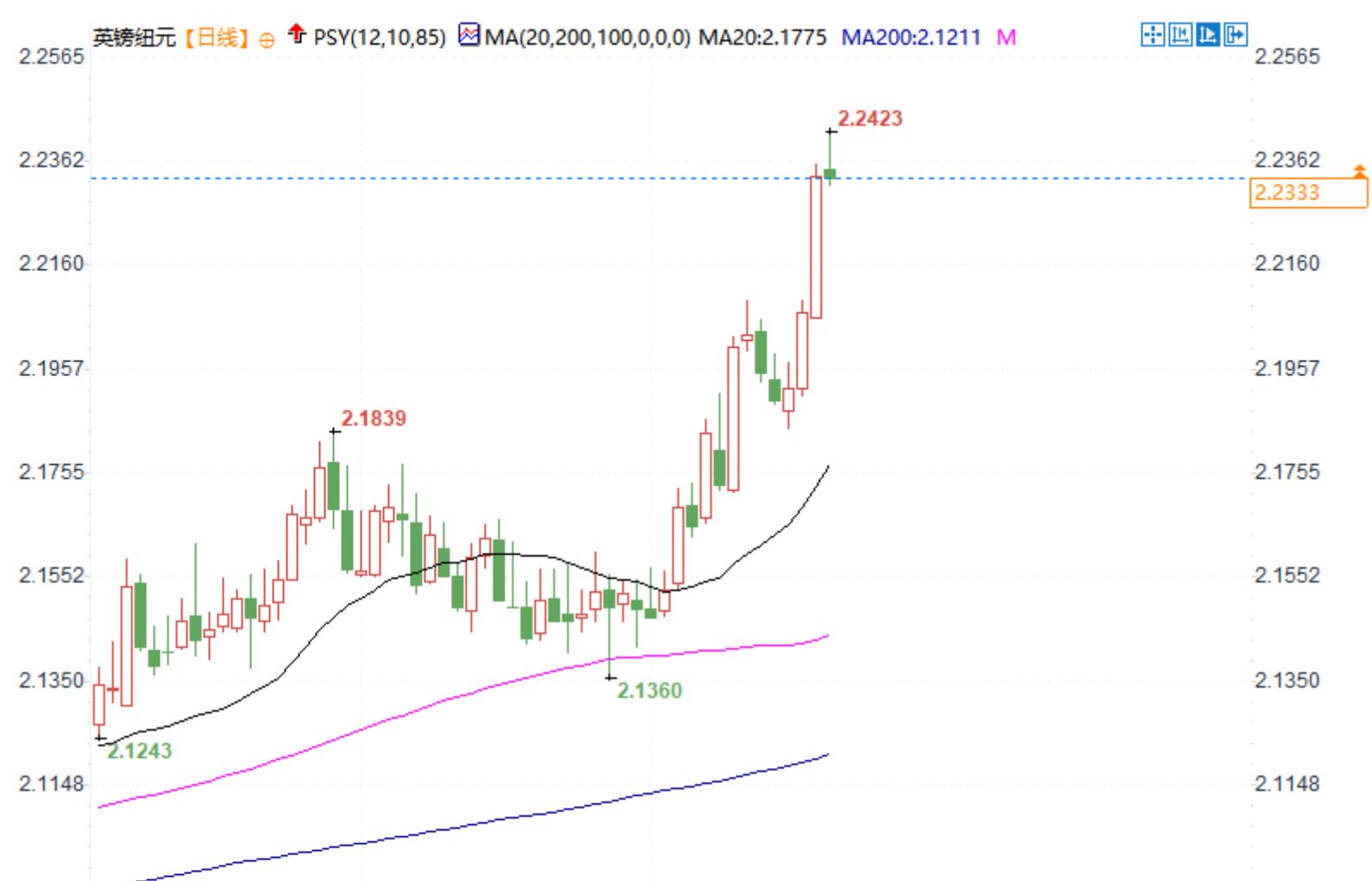GBP/NZD surges to a nine-year high! Short term correction or continued upward exploration?
Due to disappointing GDP data in New Zealand, the GBP/NZD experienced a sharp rise. But analysts believe that the short-term rise in the exchange rate appears somewhat overheated.
NZD: Victims of global financial adjustment
NZD has become one of the main victims of the global financial adjustment after the Federal Reserve's policy update in December. In addition, data shows that the New Zealand economy shrank by 1.0% in the third quarter, much larger than the market's expected contraction of 0.2%.
The Federal Reserve's policy update has dampened pre Christmas optimism, and it is expected that its interest rate cuts in 2025 will be less than previously anticipated by the market. This prospect has led to high borrowing costs in the United States, pushing up US bond yields and subsequently increasing global bond yields, which means an increase in global borrowing costs.
As a result, the stock market and commodity prices fell, while the US dollar appreciated significantly. The correlation between NZD and investor sentiment is strong, therefore it is under pressure in stock market selling.
GBP/NZD hits a nine-year high
On Thursday, December 19th, GBP/NZD trading was around 2.2350, the highest range level in nine years (since December 2015).
The daily chart shows that the Relative Strength Index (RSI) has exceeded 70, and the rise of GBP/NZD has entered the overbought zone. Technical rules indicate that an RSI above 70 is overbought, but analysts believe that RSI may return to below 70 in the future; This may require a correction in the pound or a consolidation of the exchange rate, although this does not indicate an immediate change in trend, it still sends a warning signal that the upward trend will weaken.
NZD fundamentals weak, still under pressure in 2025
Analysts believe that by 2025, the New Zealand dollar will be in a weak state, dragged down by economic weakness, high US bond yields, and a strong US dollar. Official data shows that the New Zealand economy shrank by 1.0% in the third quarter, and the month on month growth rate in the second quarter was significantly reduced from -0.2% to -1.1%.
TD Securities mentioned that the cumulative decline of the New Zealand economy in the second and third quarters was 2.1%, the largest two quarter decline since 1991. However, analysts point out that the economic performance is not significantly different from the expectations of the Reserve Bank of New Zealand, so the overall outlook has not changed significantly.
TD Securities stated, "Given the guidance provided by Reserve Bank of New Zealand Chairman Orr at the November Monetary Policy Statement (MPS) press conference and the expectation of a 50 basis point rate cut indicated by the official cash rate (OCR) path, we expect a 50 basis point rate cut at the February 2025 meeting and maintain a 25 basis point rate cut at each subsequent meeting until OCR drops to 3% in July 2025 (previously August 2025)
Analysts believe that the Reserve Bank of New Zealand may cut interest rates again in February next year. The rate cut by the Reserve Bank of New Zealand significantly exceeds that of the Bank of England, and this interest rate divergence supports the upward trend of the GBP/NZD.
GBP/NZD may experience a short-term correction
Overall, analysts believe that the fundamentals continue to favor GBP/NZD, but the short-term rise in the exchange rate seems somewhat excessive.、

Tips:This page came from Internet, which is not standing for FXCUE opinions of this website.
Statement:Contact us if the content violates the law or your rights
